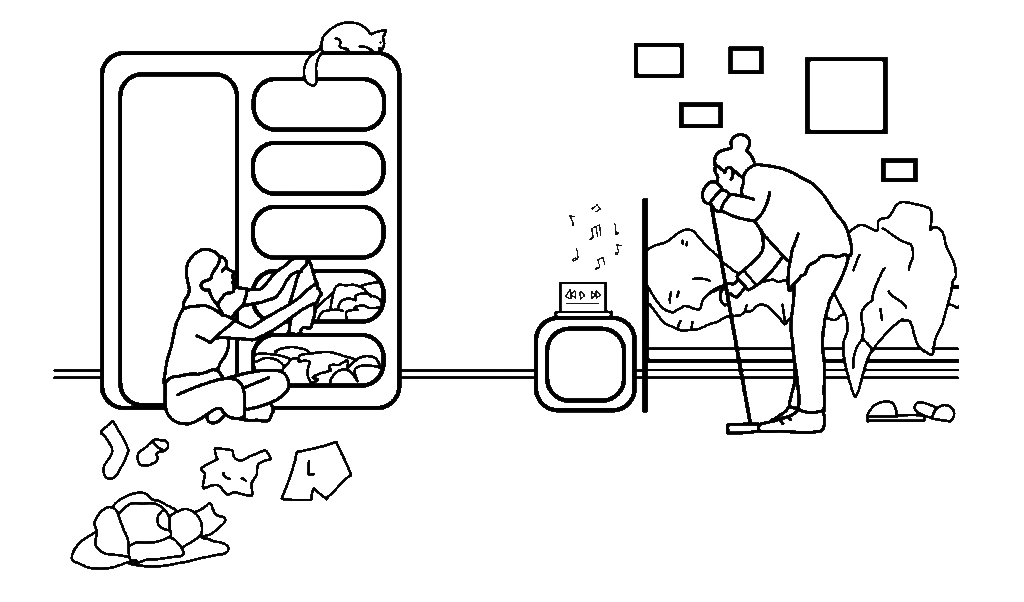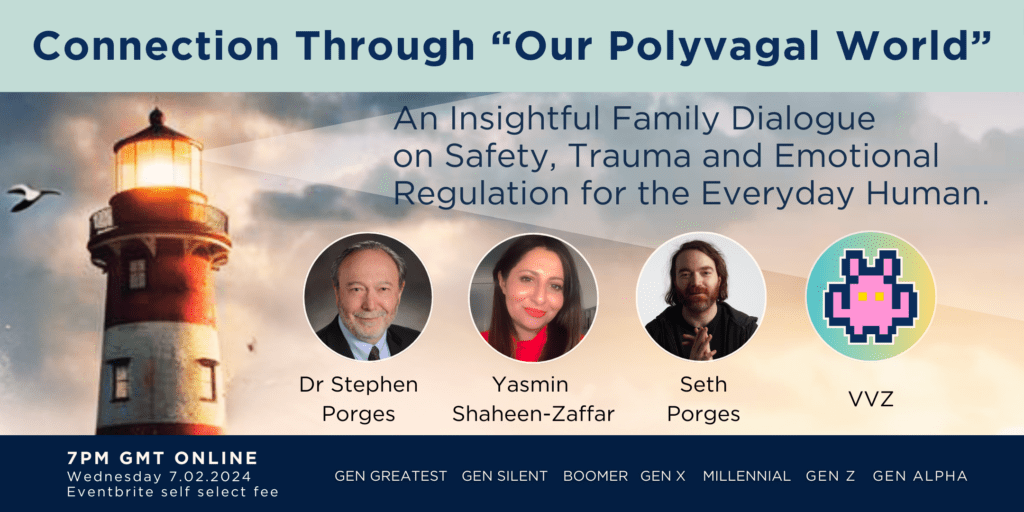Home » Polyvagal Parenting Tools | Teens & Tweens at Home
Polyvagal Parenting Tools for Families & Caregivers
Support for neurodivergent families - even when feelings are hard
Polyvagal parenting tools turn stress into steps you can take now. So, you can spot emotional regulation patterns, work through tough moments, recover faster and build steadier days at home. Over time, that means fewer flare-ups, steadier routines, and more connection – especially for neurodivergent, ADHD, autistic teens or those with rejection sensitivity.
Begin with the free R.U.D Process®: a one-page guide to increasing self-awareness and diffusing tough moments.
At A Glance ...
- Who it’s for: parents, blended families, caregivers and families of teens & tweens (plus SENCOs/youth workers supporting families).
- What you’ll learn: a simple, consent-led way to use polyvagal principles with your teen and within the family.
- Focus areas: emotional regulation, sensory needs, family communication, rejection sensitivity, alexithymia, everyday wellbeing.
- Format: short demos, session-ready micro-practices, printable tools.
- Ethics: neuro-affirming, trauma-sensitive, scope-aware. No promises or guarantees.
- Crisis: not for emergencies - follow local safeguarding and emergency pathways.
And what exactly is polyvagal parenting?
How the R.U.D Process® helps your family:
Understand behaviour as a clue to the nervous system: first, notice sensations, cues and patterns so you can act sooner and de-escalate faster.
Fewer flare-ups, quicker recoveries: as a result of shared language, tough moments pass sooner.
Steadier routines: next, use clear steps for mornings, transitions and evenings.
Confidence for caregivers: in addition, simple scripts and visuals actually get used.
Neurodivergent-friendly: finally, concrete, visual, choice-based tools support ADHD/autistic young people.
Common home struggles (Does this sound familiar?)

Polyvagal Parenting Tools for Families & Caregivers - Support for ADHD & Autistic Teens
Before: you know how you “should” respond. However, when pressure rises, even the best intentions vanish. Because stress narrows choices, families need a shared approach that still works in the moment. So, instead of guessing, you can follow a simple, repeatable step.
Enter the R.U.D Process®. Through short visuals and polyvagal parenting tools, you learn to see behaviour as a clue to the nervous system. Then, by raising self-awareness, you can act sooner, recover quicker, and therefore reduce the spiral for everyone. In other words, you move from “reacting” to “responding”.
How you can get started with Polyvagal Parenting:
- Start free: R.U.D Process® + States Tracker – one-page guide + six printable worksheets for families and teens to increase self-awareness and defuse tough moments. (Permission to print & share.)
What’s My State? Card Deck – a teen-friendly way to put feelings into words and choose a next step together.
A quick note on health & safety Our resources are psychoeducation tools that complement therapy or medical care. They aren’t a crisis service – please use local emergency/safeguarding support if you’re worried about immediate risk.
rud process form to be inserted
FAQs: Meltdowns, Shutdowns & Transitions
Yes. Because small steps stack up. Supporting in neuroplasticity – the brains ability to create new neural pathways.
Small, consistent steps create momentum. Using polyvagal parenting tools builds shared language, steadier routines, and earlier responses – so you see fewer flare-ups and quicker recoveries at home.
Simply put, you can’t change what you don’t notice. Therefore, The R.U.D Process® builds early warning and options.
It’s the first step to change. When you and your teen notice sensations, cues, and patterns, you can act sooner and de-escalate faster. Our R.U.D Process® + States Tracker make teen emotional regulation at home simple and practical.
Neuroplasticity means the brain and nervous system can change with use – like a path that gets clearer every time you walk it. When we repeat the same small steps, the brain makes that path easier to find next time. This is especially helpful when feelings are hard to name or when stress hits fast.
The R.U.D Process® (Recognise → Understand → Diffuse) turns that idea into action:
Recognise what’s happening now (body clues and behaviours).
Understand what your nervous system might be trying to do (protect, connect, or shut down).
Develop one small, steady step you can add next time it happens to support you.
By practising the same steps in similar moments, you build a reliable route through stress. Over time, choices come quicker, flare-ups shorten, and routines feel steadier – for teens and adults, including ADHD/autistic family members and those who find feelings hard to name.
Often, yes. For instance, visual prompts and regulated check ins reduce shame spirals for ADHD/autistic teens.
Our resources are neuro-affirming – concrete, visual, and choice-based. They help ADHD/autistic teens notice early signs of RSD, choose a next step, and use family communication scripts that reduce shame and reactivity.
Yes. Everything is neuro-affirming – visual, concrete, choice-based – for ADHD/autistic teens and tweens.
It’s important for young people to understand their nervous system, so that they can build healthy relationships and develop skills like self-regulation.
Taking the time to pay attention to our sensory experiences is a great way of tracking emotions – this helps us put feelings into words, making it easier for us all deal with life challenges in healthier ways. Research suggests that the ability to label an emotion by putting feelings into words can help people better regulate their challenging emotions¹.
These helpful insights don’t come naturally; we learn them mainly through positive relationships early on in life which gives us confidence when faced with adversity throughout adulthood too!
Blended families often juggle different routines and expectations. We focus on shared language and predictable routines for teens (mornings, homework, evenings) so co-parents and caregivers can respond consistently across homes.
First, use the Card Deck for language. Then, download the R.U.D + States Tracker to help you start noticing your patterns and habits.
Yes they can. Many teens prefer visual prompts and short choices. The deck and routines let you work around long chats – spot patterns, take one small step, and review later.
Absolutely. The visuals and routines transfer to school. Share the States Tracker or a short routine with your SENCO/teacher to keep responses consistent.
No. These are polyvagal tools for parents of teens & tweens that complement therapy or healthcare. If you’re worried about risk or health concerns, follow local safeguarding and medical guidance.
Yes our Glad We Talked® – Finding My Steady is our polyvagal informed flagship programme for better family communication programme (teens) that helps you open safer conversations and repair after tough moments.
Absolutely yes. Yes. All can take part in The R.U.D Process® just print out worksheets for each or use our fillable pdf worksheets to fill out on your devices.

